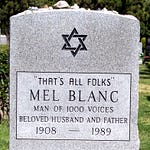Over 500 years ago, Columbus headed west out of Spain on his historical trip. Whether you credit him with “finding” what is now known as the Americas or not, he encountered an indigenous group of people called the Taíno in the Caribbean, and that encounter led to the introduction of certain words into the Spanish language through word borrowing. When one culture comes into contact with a different culture and learns of things that do not exist back home, then that first culture will often “borrow” the words already in use — usually with a spelling and/or pronunciation change but not always.
Many of the words they borrowed later made their way into the English language as well.
One of those words is “hurricane,” a word on lots of people’s lips right now since the hurricane named Ian has recently left a wide swath of destruction in his wake.
hurricane — a tropical cyclone with winds measuring 74 miles per hour and up
huracán — the Spanish cognate of the same meaning and from which our English word came
hurakán — the Taíno word from which the Spanish and then the English word came
Prior to sailing into the Caribbean, the Spanish sailors had no previous knowledge of or experience with “hurricanes,” so there was no need for a word in the Spanish language dealing with such an event. Once they learned of such a thing and probably experienced one somewhere on a voyage or during their stay in this part of the world, they began to use the word. Then the word traveled from language to language and culture to culture.
The Taíno people had words for other things that didn’t exist back in Spain and the old world — things that we now take somewhat for granted.

“Hammock” came to us from Spanish “hamaca” which came from the Taíno language. “Barbecue” came to us from Spanish “barbacoa” which referred to the framework used to support the meat over the fire, so it could be cooked that way, and “barbacoa” came from the Taíno language and culture. These are a couple cognates that I’m happy to have in my vocabulary.
There are many more, and a quick online search will show them to you. Getting back to our cognate duo of “hurricane” and “huracán,” they both start with the letter H, but in Spanish that letter is silent, so begin the pronunciation with that U instead. (That applies to “hamaca” as well.)
Columbus Day, now often called Indigenous Peoples’ Day, is coming up. Whether you view him in a positive or a negative light and whether you credit him as being the “first” explorer to the New World or not, his trip did take him into a part of the world unknown to other Europeans prior. From that trip came many things. To me, the most interesting things gained from it were the new words that entered the Spanish language, and while Columbus and the conquistadores who followed him did in fact steal many things from the indigenous people already occupying those lands, they only borrowed words because that’s all one culture can do with another culture’s language.
I’m so sorry for all the damage left in the wake of Hurricane Ian, and my heart goes out to every person impacted by it. The property loss is astronomical, but I’m much more saddened by the loss of life and the numbers coming out of Florida that continue to grow every day. Unfortunately, hurricanes exist, and now you know where we got the word that names the phenomenon.
Until next time. Stay safe everyone.
Tammy Marshall














Share this post